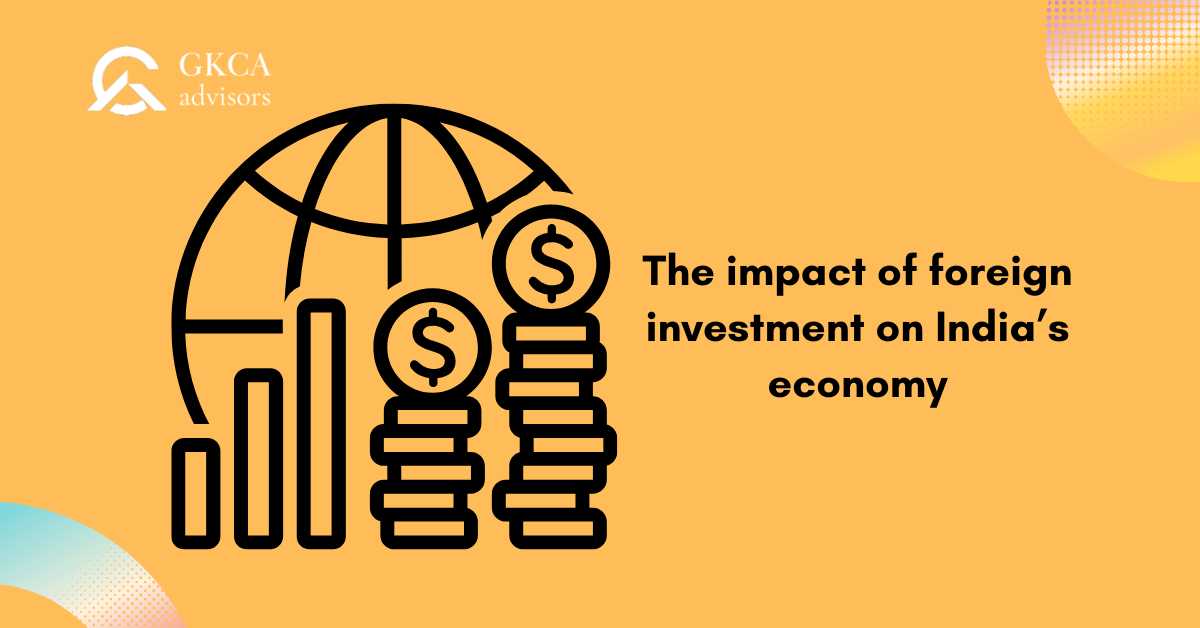Foreign Direct Investment (FDI) has become a cornerstone of India’s economic growth strategy, reshaping the nation’s business landscape and propelling its ascent on the global stage. This article delves into the multifaceted impact of FDI on India’s economy, exploring how it drives innovation, creates jobs, and stimulates overall development. Whether you’re an investor, policymaker, or simply curious about India’s economic trajectory, understanding the role of Foreign Direct Investment is essential for grasping the dynamics of one of the world’s fastest-growing economies.

Abstract: The Significance of FDI in India’s Economic Landscape
Foreign Direct Investment has emerged as a critical factor in India’s economic transformation. As a major source of non-debt financial resources, Foreign Direct Investment plays a pivotal role in the country’s development process. The inflow of foreign capital not only brings in much-needed funds but also introduces advanced technologies, managerial expertise, and access to global markets. This symbiotic relationship between foreign investors and the Indian economy has been instrumental in driving growth across various sectors, from manufacturing to services.
The Evolution of FDI Policies and Regulations in India
India’s journey with FDI has been marked by significant policy shifts and regulatory changes. From the cautious approach of the pre-liberalization era to the more open and inviting stance of recent years, the Indian government has continuously refined its Foreign Direct Investment policies to attract global investors. These policy reforms have aimed to create a more business-friendly environment, simplify procedures, and open up new sectors for foreign investment.
The government’s “Make in India” initiative, launched in 2014, has been a game-changer in attracting FDI. This program, coupled with other reforms such as the implementation of Goods and Services Tax (GST) and improvements in ease of doing business, has significantly enhanced India’s appeal as an investment destination. The gradual relaxation of Foreign Direct Investment norms in sectors like defense, insurance, and single-brand retail has further widened the scope for foreign investors to participate in India’s growth story.
Sectoral Impact: How FDI is Reshaping Various Industries
The influx of FDI has had a transformative effect on numerous sectors of the Indian economy. In the manufacturing sector, foreign investment has led to the introduction of cutting-edge technologies and global best practices, significantly boosting productivity and competitiveness. The automotive industry, for instance, has witnessed a surge in innovation and quality standards due to partnerships with global automakers.
In the services sector, Foreign Direct Investment has been a catalyst for growth, particularly in IT and IT-enabled services. The infusion of capital and expertise from foreign companies has helped India establish itself as a global IT powerhouse. Similarly, the retail sector has seen a paradigm shift with the entry of international players, leading to improved supply chain management and enhanced customer experiences.
The infrastructure sector, crucial for India’s long-term growth prospects, has also benefited immensely from FDI. Foreign investment in areas like power generation, telecommunications, and transportation has not only bridged the infrastructure gap but also introduced more efficient and sustainable practices.
Economic Implications: FDI’s Contribution to GDP and Employment
The impact of Foreign Direct Investment on India’s Gross Domestic Product (GDP) has been substantial. Foreign investments have contributed to increased capital formation, leading to higher economic growth rates. According to recent data, FDI inflows have shown a positive correlation with GDP growth, underscoring the importance of foreign capital in driving economic expansion.
Moreover, Foreign Direct Investment has played a crucial role in job creation, both directly and indirectly. Foreign companies setting up operations in India have generated employment opportunities across skill levels. The multiplier effect of these investments has led to job creation in ancillary industries and support services as well. This has been particularly significant in addressing India’s demographic dividend, providing employment to its large young workforce.
Technology Transfer and Innovation: FDI as a Catalyst for Modernization
One of the most significant benefits of Foreign Direct Investment has been the transfer of technology and know-how to Indian businesses. Foreign investors often bring with them advanced technologies, innovative processes, and global best practices. This transfer of knowledge has helped Indian companies enhance their technological capabilities, improve product quality, and increase overall efficiency.
The spillover effects of this technology transfer extend beyond the companies directly receiving foreign investment. As domestic firms interact with foreign-invested enterprises, they often adopt similar technologies and practices, leading to a broader technological upgrade across industries. This has been particularly evident in sectors like telecommunications, where foreign investments have accelerated the adoption of 4G and 5G technologies.
Challenges and Considerations: Balancing FDI with Domestic Interests
While the overall impact of FDI on India’s economy has been positive, it’s important to address the challenges and considerations that come with increased foreign investment. One of the primary concerns has been the potential crowding out of domestic businesses, especially small and medium enterprises (SMEs). Policymakers have had to strike a delicate balance between attracting foreign capital and protecting the interests of local industries.
Another challenge has been ensuring that the benefits of FDI are distributed equitably across regions and sectors. While certain states and urban centers have attracted significant foreign investment, others have lagged behind. Addressing this regional imbalance remains a key focus area for policymakers.
There are also concerns about the repatriation of profits by foreign companies and its impact on India’s balance of payments. While FDI inflows contribute positively to the capital account, outflows in the form of dividends and royalties can affect the current account balance.
Future Outlook: Prospects and Potential of FDI in India
Looking ahead, the prospects for FDI in India remain bright. The country’s large and growing consumer market, skilled workforce, and improving business environment continue to make it an attractive destination for foreign investors. Emerging sectors like renewable energy, e-commerce, and fintech are likely to see increased FDI inflows in the coming years.
The Indian government’s commitment to further liberalizing FDI policies and improving the ease of doing business is expected to sustain the momentum of foreign investments. Initiatives like the Production Linked Incentive (PLI) scheme are aimed at attracting FDI in critical sectors and positioning India as a global manufacturing hub.
However, realizing the full potential of FDI will require ongoing efforts to address infrastructural bottlenecks, streamline regulations, and enhance the overall investment climate. As India aims to become a $5 trillion economy, FDI will undoubtedly play a crucial role in achieving this ambitious goal.
Key Takeaways: The Enduring Impact of FDI on India’s Economic Landscape
- FDI has been a significant driver of economic growth in India, contributing to GDP expansion and job creation.
- Policy reforms and initiatives like “Make in India” have enhanced India’s attractiveness as an FDI destination.
- Foreign investment has led to technology transfer and innovation across various sectors of the economy.
- FDI has played a crucial role in modernizing India’s infrastructure and manufacturing capabilities.
- Challenges remain in balancing foreign investment with domestic interests and ensuring equitable regional development.
- The future outlook for FDI in India is positive, with emerging sectors offering new opportunities for foreign investors.
- Continued policy reforms and improvements in the business environment will be key to sustaining FDI inflows.
As India continues its journey towards becoming a global economic powerhouse, the role of Foreign Direct Investment in shaping its growth trajectory cannot be overstated. By leveraging foreign capital, expertise, and technology, India is not only accelerating its economic development but also positioning itself as a key player in the global economy. The story of FDI in India is one of transformation, challenges, and immense potential, reflecting the dynamic nature of the country’s economic landscape.
